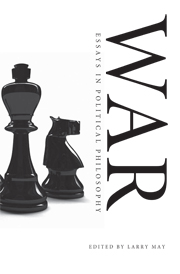1 - Jus ad Bellum
Published online by Cambridge University Press: 05 June 2012
Summary
If we take into account the broad historical scope of moral reflection on resort to armed force, the expression jus ad bellum is of fairly recent coinage. Its employment as a term of art dates roughly from the nineteenth century, when international lawyers who had taken inspiration from the earlier work of Wolff and Vattel sought to separate questions relating proper conduct in war (jus in bello) from the substantive reasons states might have for resorting to war (jus ad bellum). The supposition was that each state could decide for itself whether going to war would serve its vital interests (the doctrine of raison d'état). By contrast, the rules governing proper conduct in war were thought to have a firm legal content and were deemed to be applicable to all sovereign states. Thus, whereas the jus in bello was accorded an objective status, the jus ad bellum was largely relegated to the private conscience of each sovereign.
The conception that has just been described was reversed in the early to mid-twentieth century, when a series of international treaties – the League of Nations (1919), the Pact of Paris (1928), and the United Nations Charter (1945) – sought to regulate the jus ad bellum by reference to a set of objective rules. Noteworthy in this regard were the Nuremberg proceedings of 1946, wherein several Nazi leaders were tried under the charge of “aggression.
- Type
- Chapter
- Information
- WarEssays in Political Philosophy, pp. 11 - 29Publisher: Cambridge University PressPrint publication year: 2008
- 5
- Cited by



